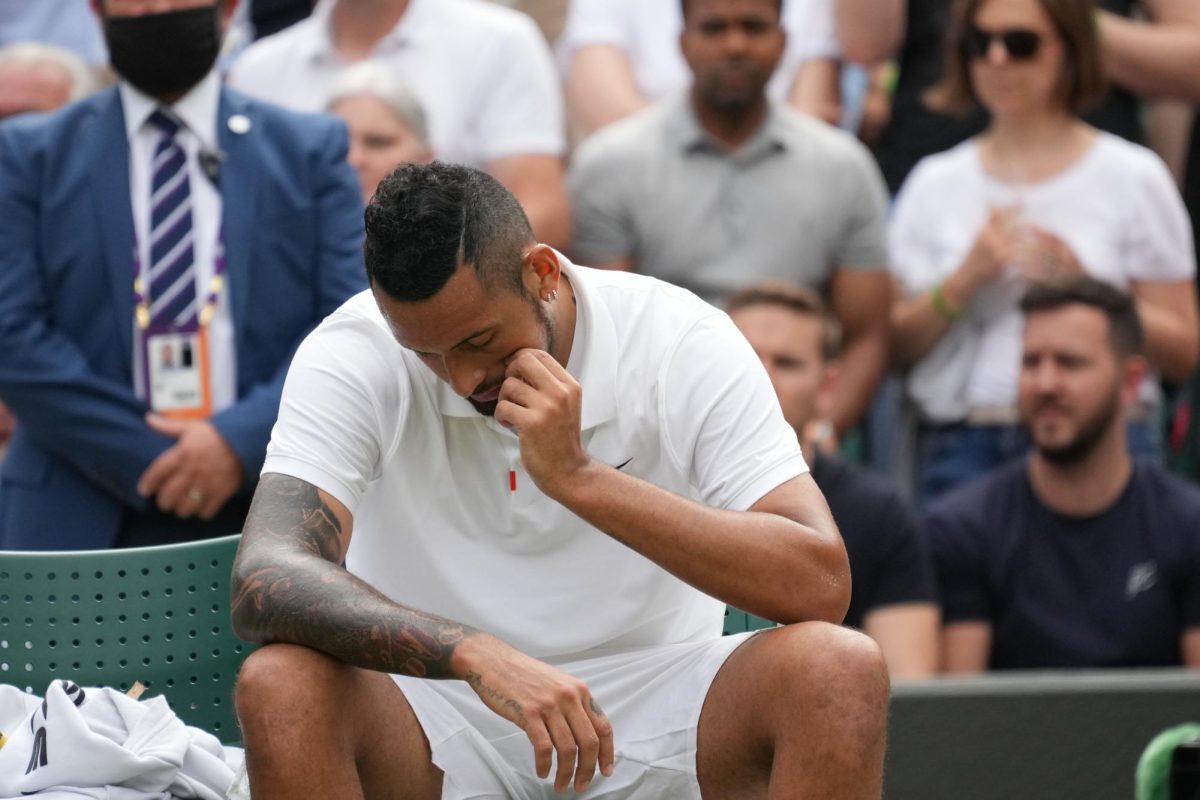In anticipation of who might win the U.S. Open, which began Aug. 28, many fans are dismayed to see top players Nick Kyrgios and Paula Badosa withdraw months after revealing their struggles with mental health.
Both players had the tennis world’s attention after their raw discussion about mental health in the Netflix docuseries “Break Point.”
Nick Kyrgios, known for his belligerence and “bad boy” attitude, revealed that he contemplated committing suicide after his loss at Wimbledon. Since then, Kyrgios has had prominent issues with alcohol and drug abuse, as well as self-harm.
“I ended up in a psych ward in London to figure out my problems. If you look closely, on my right arm, you can see my self-harm,” Kyrgios said in the docuseries.
Many fans recognize Kyrgios for his “basketball player” presence on the court, but fans tend to overlook the arm sleeve he wears. In an interview with Men’s Health, Kyrgios admitted to wearing the sleeve to conceal his scars. The struggles heavily affected his game.
“I was having suicidal thoughts and was literally struggling to get out of bed, let alone play in front of millions,” Kyrgios said in February 2022.
It’s no surprise that tennis players feel obligated to present themselves as perfect competitors. The nature of the sport itself is rooted in sportsmanship. From beginning a match by shaking hands, to ending with racquet taps and even hugs, tennis players are expected to maintain a level of professionalism throughout their matches – and lives.
So when Kyrgios presented the “less perfect” side of himself, tennis fans had a lot to say, as did his competitors.
“I don’t think he’s a bad guy, but what he lacks is a little bit of respect for [his] rival, the public, and for himself. I think he should improve on that,” former world No. 1 Rafael Nadal said after beating Kyrgios.
Badosa also used “Break Point” to convey her message to other athletes struggling with depression and anxiety. With a career high ranking of No. 2 in the world, Badosa was one of the first to openly dissect her relationship with the sport.
In 2019, she released a video sharing her journey with depression.
“I didn’t enjoy anything when I went to play. It was the opposite: I felt pressure, obligation, and all these fears. ” Badosa said in the video. “I didn’t want to step onto a tennis court. I didn’t want to compete.”
During an emotional episode of “Break Point,” Badosa told viewers that her relationship with tennis was bipolar.
“When I’m okay, I feel at home on court and I feel like this is my place. But I go from that to ‘get me out of here, I want to die,’” Badosa said.
As Badosa acknowledges in the docuseries, the difference between tennis and other sports is that you’re competing alone. The gratification of a win falls only on you, but so does the burden of a loss.
“That is the challenge of tennis, because it is very, very mental. All the time [it is] playing with your mind,” Badosa said. “If the head is not ready when the body is, the pressure and the anxiety and depression are going to come. It’s just a very tough sport.”


